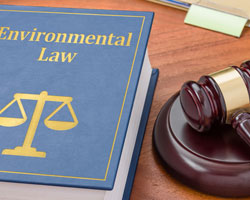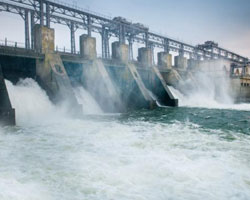Environmental law
 The EPA monitors and analyzes the environment, conducts research and works closely with state and local governments to devise pollution control policies. The National Environmental Policy Act, enacted in 1969, has been described as one of Congress’s most far-reaching pieces of environmental legislation ever passed. The basic purpose of the act is to force governmental agencies to consider the effects of their decisions on the environment. State laws also reflect the same concerns, and common-law actions allow adversely affected property owners to seek a judicial remedy for environmental harms.
The EPA monitors and analyzes the environment, conducts research and works closely with state and local governments to devise pollution control policies. The National Environmental Policy Act, enacted in 1969, has been described as one of Congress’s most far-reaching pieces of environmental legislation ever passed. The basic purpose of the act is to force governmental agencies to consider the effects of their decisions on the environment. State laws also reflect the same concerns, and common-law actions allow adversely affected property owners to seek a judicial remedy for environmental harms.
Over the last half century, with the recognition that unregulated use of natural resources and unmanaged industrial production can have a broad range of undesirable consequences, a body of law has developed that seeks to balance the interests of commerce and the economy with the need to protect the health and welfare of individuals and the environment.
The U.S. Congress created the Environmental Protection Agency, and has taken action to promote policies that improve air and water quality standards across the nation. Legislation has also been enacted to cover the costs of cleanup of toxic waste facilities.
Connect with Top-rated Attorneys Near You
Environmental law Practice Areas
Latest Article
What Is a Trust Fund? A Comprehensive Guide
A trust fund is a powerful tool that has stood the test of time. It is an essential instrument in modern wealth manageme... Read More
Arraignment: Meaning, Common Charges, & Process
Arraignment is a pivotal moment within the criminal justice system, marking the formal initiation of criminal proceeding... Read More
What Is Probable Cause? Definition and Examples
The Constitution protects you from being searched without a valid reason. But what exactly constitutes a valid reason? A... Read More
GETLEGAL®ATTORNEY DIRECTORY
Find Leading Attorneys in Your Area
NEED PROFESSIONAL HELP?
Talk to an Attorney
How It Works
- Briefly tell us about your case
- Provide your contact information
- Choose attorneys to contact you







